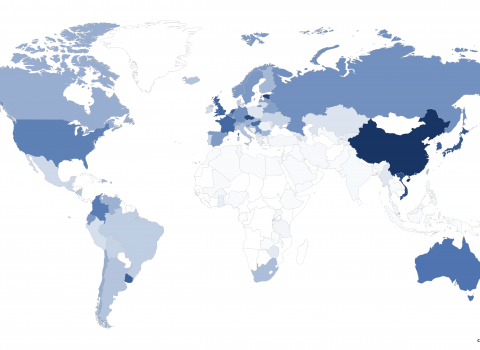
Big data and non-religion
A new paper authored by FBK researchers Dominik Balazka and Bruno Lepri, with the contribution of Prof. Dick Houtman (KU Leuven), sheds light on the possible impact of Big Data on the future development of non-religion studies
As shown by the recent report “Mapping Religious Nones in 112 Countries: An Overview of European Values Study and World Values Survey Data (1981-2020)”, in many Western states the so-called non-affiliates are now the new majority.
In this socio-cultural context, the study of non-religion has gained momentum intertwining with other relevant issues such as, for example, social integration or freedom of thought. The main problem is that for many years the research objectives were different.
For decades we have studied the decline of religious practices and beliefs without questioning the deeper implications of non-religion. For this reason, addressing the new questions with the data collected so far is often very difficult.
In the article “How Can Big Data Shape the Field of Non-Religion Studies? And Why Does It Matter?” (Patterns, 2021), researchers D. Balazka, D. Houtman, and B. Lepri highlight the limitations of traditional approaches to non-religion and consider the potential benefits of greater integration of Big Data in research on the phenomenon.
What strongly emerges from the research is the need for specialized skills required by the use of computational techniques. For this reason, the authors believe that in the future this new research area will have to draw from sociology of religion, digital humanities and computational social sciences.
This will require a more collaborative and above all more interdisciplinary approach to research. A challenge that FBK is ready to take up, as shown by the intertwining of the academic backgrounds of the authors themselves, who combine ICT skills and humanities and philosophy studies.
This interdisciplinarity translates into a greater ability to understand the complexity and in particular to deepen the ethical implications of the development choices for new technologies and their gradual circulation in the public debate.

Patterns is a Cell Press (Elsevier) Open Access journal that publishes wide-ranging original research on data science.
Cover: Mathew Schwartz via Unsplash.






